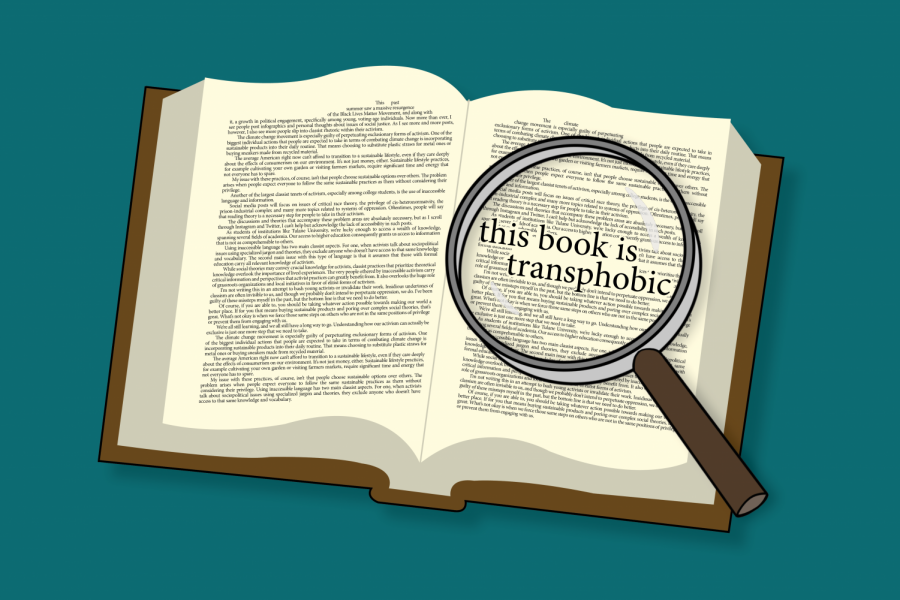OPINION | J.K. Rowling releases new book, continues pattern of transphobia
Renowned author J.K. Rowling, best known for her work on the “Harry Potter” series, has been releasing the “Cormoran Strike” detective series since April 2013, under pen name Robert Gailbraith. Recent controversy has come up, however, surrounding the newest installment in the series, “Troubled Blood,” which focuses on a cisgender-male serial killer who crossdresses as a woman in order to get close to his victims.
The featuring of transphobic tropes that center cisgender women’s fears of a man in a dress is hardly the first time Rowling has come under fire for her treatment of transgender and non-binary folks. Criticism of her transphobia can be traced back to December 2019, when she publicly came out in support of Maya Forstater, a woman whose contract was not renewed with her employer on the basis of comments that have been perceived as transphobic, such as that “Men cannot change into women.”
Rowling hardly stopped there, and has since gone out of her way to utilize her public platform in order to promote restrictive views on transgender identities. She criticized a media publication’s headline for substituting “women” with “people who menstruate,” dismissing transgender men or gender non-binary individuals menstruating or cisgender women not undergoing menstruation. In a personal essay published on her website, she wrote that “When you throw open the doors of bathrooms and changing rooms to any man who believes or feels he’s a woman … then you open the door to any and all men who wish to come inside.” Rowling attempted to justify these beliefs with her lived experience as a survivor of sexual assault and domestic abuse.
As seen with her personal comments and blatant use of a transphobic caricature in her book, Rowling appears to believe that she has a right to never seriously confront her transphobia while profiting at the expense of the affirmation of transgender people’s identity and right to live their lives in comfort. In her essay, Rowling laments her “cancellations” and describes a culture of fear that surrounds discourse on topics like gender. This framing of criticism against her as a part of “cancel culture” rather than as a naturally fierce response to her dangerous representations of transgender people and invalidation of their identities clearly posits her as the victim in this debate, rather than as an oppressive figure.
The content of Rowling’s new book, as well as her offensive comments, has had very real consequences in the lives of transgender people. This past summer, the Equality Act, which would provide explicit anti-discrimination protections for LGBTQ individuals, was blocked in the U.S. Senate with Oklahoma Sen. James Lankford quoting Rowling’s personal essay as a reason for blocking the bill.
Rowling’s portrayal of transgender people, specifically trans women, as potential abusers or violent criminals is particularly harmful. Aside from the main antagonist in “Troubled Blood,” Rowling has portrayed transgender women in her novels as unstable, violent and often provided them with unflattering descriptions. All of this is in contrast to statistics pointing to egregious amounts of verbal, physical and sexual violence being committed against transgender individuals. She has also depicted the affirmation of transgender identities as a threat to “biological” women, in the case of transgender women, or as stemming from a need to escape misogyny, in the case of transgender men. Her statements embolden individuals to lean into, rather than question, their transphobic socialization, and create hostile, and possibly dangerous, environments for transgender people everywhere.
Your donation will support the student journalists of Tulane University. Your contribution will allow us to purchase equipment and cover our annual website hosting costs.



